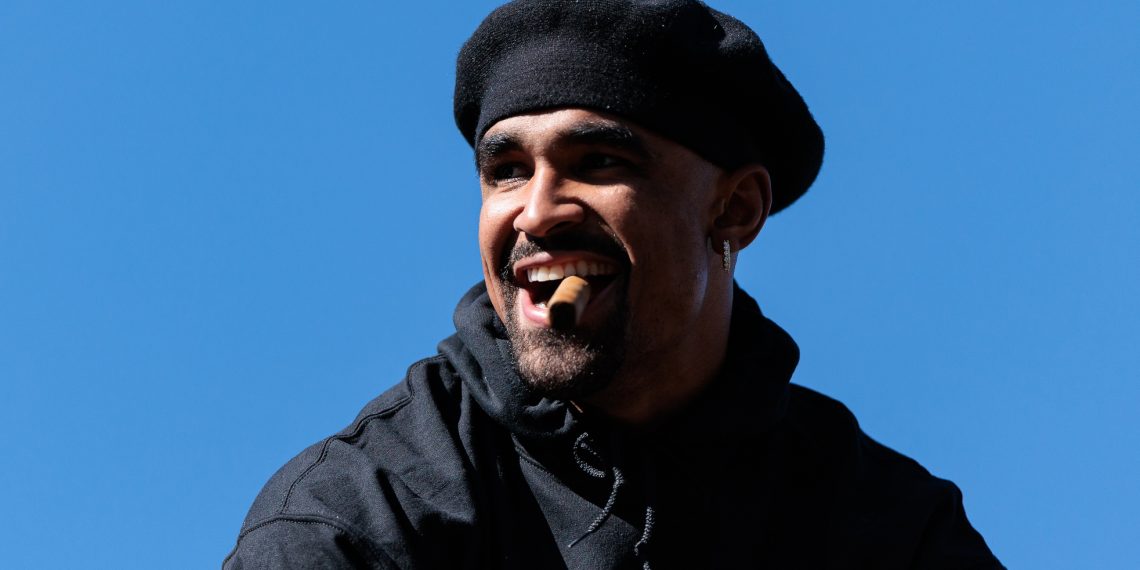Introduction
Jalen Hurts now faces a formidable challenge as changes in NFL rules could soon restrict a move that has become a signature of his play. As teams prepare for Super Bowl LIX, discussions are underway to curb the maneuver that many fans have come to recognize under various nicknames.
Evolution of a Key Move
The quarterback sneak, often referred to by enthusiastic fans as the Tush Push or the Brotherly Shove, has long been a staple in Hurts’ arsenal. With his trademark quick decision-making and tenacity, Hurts has turned this simple play into a powerful weapon that consistently puts his team in an advantageous position. Despite its multiple monikers, he prefers the straightforward term “quarterback sneak,” a reflection of his focus on performance over labels.
NFL Rule Changes on the Horizon
Recent shifts in the NFL’s approach signal a potential change to a play that has defined modern offensive strategy. Some franchises are actively pushing to eliminate this tactic, believing that its impact on game dynamics is substantial enough to call for rule reexamination. This strategic move by league decision-makers could redefine an element of the game that Hurts and his team have repeatedly capitalized on.
Impact on the Upcoming Championship
With Super Bowl LIX on the horizon, modifications in the rules could have significant implications for team tactics and individual performances. Hurts, a player known for his agility and innovative approach, might need to adjust his style if the quarterback sneak is no longer viable in its current form. The potential ban represents a turning point that not only affects his game plan but also has broader ramifications for offensive strategies across the league.
Looking Ahead
As the conversation around the maneuver intensifies, the unfolding adjustments within the NFL will challenge both coaches and players to rethink longstanding practices. Whether the change will spur the development of new tactical approaches or diminish a celebrated play remains to be seen. Hurts’ ability to adapt in the face of shifting regulations will play a crucial role in the evolving landscape of professional football.









